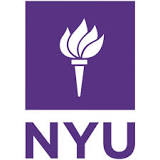The REFLECT Trial: Cerebral Protection to Reduce Cerebral Embolic Lesions After Transcatheter Aortic Valve Implantation
| Status: | Recruiting |
|---|---|
| Conditions: | Cardiology |
| Therapuetic Areas: | Cardiology / Vascular Diseases |
| Healthy: | No |
| Age Range: | 18 - Any |
| Updated: | 1/19/2019 |
| Start Date: | June 2016 |
| End Date: | August 2019 |
| Contact: | Alexandra J Lansky, MD |
| Email: | alexandra.lansky@yale.edu |
| Phone: | (203) 737-2142 |
A Randomized Evaluation of the TriGuard Embolic Deflection Device to Reduce the Impact of Cerebral Embolic Lesions After Transcatheter Aortic Valve Implantation
The Keystone Heart TriGuard™ HDH is an aortic embolism deflection device intended to reduce
the amount of embolic material that may enter the carotid, subclavian, and vertebral arteries
during transcatheter heart valve implantation.
The objective of the study is to assess the safety and efficacy of the TriGuard™ HDH embolic
deflection device in patients undergoing transcatheter aortic valve implantation (TAVI), in
comparison with an active control group of patients undergoing unprotected TAVI.
Subjects with indications for TAVI and who meet study eligibility criteria will be randomized
2:1 to one of two treatment arms: 1) Intervention: Embolic protection device (TriGuard™) with
transcatheter aortic valve implantation or 2) Control: Unprotected transcatheter aortic valve
implantation.
the amount of embolic material that may enter the carotid, subclavian, and vertebral arteries
during transcatheter heart valve implantation.
The objective of the study is to assess the safety and efficacy of the TriGuard™ HDH embolic
deflection device in patients undergoing transcatheter aortic valve implantation (TAVI), in
comparison with an active control group of patients undergoing unprotected TAVI.
Subjects with indications for TAVI and who meet study eligibility criteria will be randomized
2:1 to one of two treatment arms: 1) Intervention: Embolic protection device (TriGuard™) with
transcatheter aortic valve implantation or 2) Control: Unprotected transcatheter aortic valve
implantation.
Subjects must meet ALL of the following criteria:
General Inclusion Criteria
1. The patient is a male or non-pregnant female ≥18 years of age
2. The patient meets indications for transcatheter aortic valve implantation (TAVI)
3. The patient is willing to comply with protocol-specified follow-up evaluations
4. The patient, or legally authorized representative, has been informed of the nature of
the study, agrees to its provisions and has provided written informed consent,
approved by the appropriate Institutional Review Board (IRB) or Ethics Committee (EC).
Potential Subjects will be excluded if ANY of the following criteria apply:
General Exclusion Criteria
1. Patients undergoing transcatheter aortic valve implantation (TAVI) via the
trans-axillary, trans-subclavian, or trans-aortic route
2. Patients undergoing transcatheter aortic valve implantation (TAVI) via the transapical
approach due to friable or mobile atherosclerotic plaque in the aortic arch
3. Patients with a previously implanted prosthetic aortic valve (i.e., planned
valve-in-valve transcatheter aortic valve implantation (TAVI))
4. Pregnant or nursing subjects and those who plan pregnancy in the period up to 1 year
following index procedure. Female subjects of child-bearing potential must have a
negative pregnancy test done within 14 days prior to index procedure per site standard
test
5. Patients with known diagnosis of acute myocardial infarction (AMI) within 72 hours
preceding the index procedure (according to definition) or AMI >72 hours preceding the
index procedure, in whom Creatine Kinase (CK) and CK-MB have not returned to within
normal limits at the time of procedure, or patients who are currently experiencing
clinical symptoms consistent with new-onset AMI, such as nitrate-unresponsive
prolonged chest pain
6. Patients with a history of bleeding diathesis or coagulopathy or patients in whom
anti-platelet and/or anticoagulant therapy is contraindicated, patients who will
refuse transfusion, or patients with an active peptic ulcer or history of upper
gastrointestinal (GI) bleeding within the prior 3 months
7. Patients with known mental or physical illness or known history of substance abuse
that may cause non-compliance with the protocol, confound the data interpretation, or
is associated with a life expectancy of less than one year
8. Patients with severe allergy or known hypersensitivity or contraindication to aspirin,
heparin/bivalirudin, clopidogrel, nitinol, stainless steel alloy, and/or contrast
sensitivity that cannot be adequately pre-medicated
9. Patients with a history of a stroke or transient ischemic attack (TIA) within the
prior 6 months
10. Patients with renal failure (estimated Glomerular Filtration Rate [eGFR] <30 mL/min,
calculated from serum creatinine by the Cockcroft-Gault formula)
11. Patients with hepatic failure (Child-Pugh class C)
12. Patients with hypercoagulable states that cannot be corrected by additional
periprocedural heparin
13. Patients presenting with cardiogenic shock at the time of the index procedure
14. Patients with severe peripheral arterial, abdominal aortic, or thoracic aortic disease
that precludes delivery sheath vascular access
15. Patients in whom the aortic arch, innominate artery ostium, or proximal innominate
artery is heavily calcified, severely atheromatous, or severely tortuous
16. Patients with an innominate artery ostium diameter <10 mm or >25 mm
17. Patients with a transverse aortic diameter >43
18. Patients with anatomic irregularities of the innominate artery that could prevent
positioning of the TriGuard upper stabilizer and compromise stability of the device
19. Patients with any other condition that would prevent adherence to the TriGuard HDH
Instructions for Use
20. Patients with contraindication to cerebral MRI
21. Patients who have a planned treatment with any other investigational device or
procedure during the study period
22. Patients planned to undergo any other cardiac surgical or interventional procedure
(e.g., concurrent coronary revascularization) during the TAVI procedure or within 10
days prior to the TAVI procedure. NOTE: Diagnostic cardiac catheterization is
permitted within 10 day prior to the TAVI procedure
We found this trial at
24
sites
20 York St, N20 York St,
New Haven, Connecticut 06520
New Haven, Connecticut 06520
(203) 688-4242

Principal Investigator: Alexandra Lansky, MD
Yale-New Haven Hospital Relying on the skill and expertise of more than 4,500 university and...
Click here to add this to my saved trials
9500 Euclid Avenue
Cleveland, Ohio 44106
Cleveland, Ohio 44106
216.444.2200

Principal Investigator: Samir Kapadia, MD
Cleveland Clinic Cleveland Clinic is committed to principles as presented in the United Nations Global...
Click here to add this to my saved trials
101 Jessup Hall
Iowa City, Iowa 52242
Iowa City, Iowa 52242
(319) 335-3500

Principal Investigator: Phillep Horwitz, MD
University of Iowa With just over 30,000 students, the University of Iowa is one of...
Click here to add this to my saved trials
8700 Beverly Blvd # 8211
Los Angeles, California 90048
Los Angeles, California 90048
(1-800-233-2771)

Principal Investigator: Raj Makkar, MD
Cedars Sinai Med Ctr Cedars-Sinai is known for providing the highest quality patient care. Our...
Click here to add this to my saved trials
1968 Peachtree Rd NW
Atlanta, Georgia 30309
Atlanta, Georgia 30309
(404) 605-5000

Principal Investigator: Vivic Rajogopal, MD
Piedmont Hospital For more than a century, Piedmont Healthcare has been a recognized leader in...
Click here to add this to my saved trials
Click here to add this to my saved trials
Charlottesville, Virginia 22903
(434) 924-0311

Principal Investigator: Scott Lim, MD
University of Virginia The University of Virginia is distinctive among institutions of higher education. Founded...
Click here to add this to my saved trials
Click here to add this to my saved trials
Dallas, Texas 75201
Principal Investigator: Robert Stoler, MD
Click here to add this to my saved trials
Click here to add this to my saved trials
Click here to add this to my saved trials
Click here to add this to my saved trials
Click here to add this to my saved trials
6550 Fannin St
Houston, Texas 77030
Houston, Texas 77030
(713) 790-3311

Principal Investigator: Neil Kleiman, MD
Houston Methodist Hospital Houston Methodist is comprised of a leading academic medical center in the...
Click here to add this to my saved trials
Click here to add this to my saved trials
Click here to add this to my saved trials
70 Washington Square S
New York, New York 10012
New York, New York 10012
(212) 998-1212

Principal Investigator: Hasan Jilaihawi, MD
New York University More than 175 years ago, Albert Gallatin, the distinguished statesman who served...
Click here to add this to my saved trials
New York, New York 10032
Principal Investigator: Tamim Nazif, MD
Click here to add this to my saved trials
3451 Walnut St
Philadelphia, Pennsylvania 19104
Philadelphia, Pennsylvania 19104
1 (215) 898-5000

Principal Investigator: Saif Anwaruddin, MD
Univ of Pennsylvania Penn has a long and proud tradition of intellectual rigor and pursuit...
Click here to add this to my saved trials
Click here to add this to my saved trials
Click here to add this to my saved trials
San Diego, California 92121
Principal Investigator: Maurice Buchbinder, MD
Click here to add this to my saved trials
5300 Tallman Ave NW
Seattle, Washington 98122
Seattle, Washington 98122
(206) 782-2700

Principal Investigator: Robert Bersin, MD
Swedish Medical Center Since 1910, Swedish has been the region's hallmark for excellence in health...
Click here to add this to my saved trials
Washington, District of Columbia
Principal Investigator: Ron Waksman, MD
Click here to add this to my saved trials